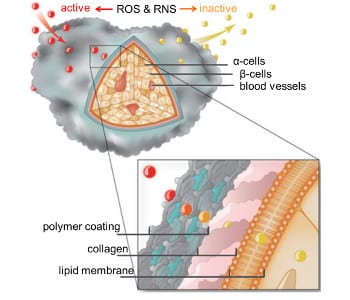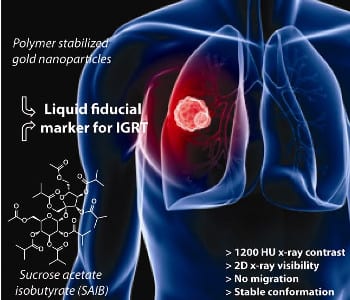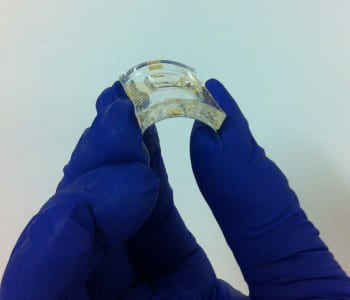In the recently released 2015 Journal Citation report, Advanced Healthcare Materials received its first two-year full Impact Factor of 5.79
Improving nanoparticle cellular uptake
A group at the University of Adelaide have developed an intracellular GSH-responsive drug delivery system with enhanced cellular uptake capability.
Light-sensitive polymers for controlled gene silencing
New research describes the use of polymers that can bind siRNAs into nanoscale assemblies that do not disassemble until they are irradiated with UV light.
Controlling cell gene expression with hydrogels
Researchers have developed a hydrogel system containing a spatial gradient of siRNA and studied its effects on encapsulated cells.

Better insulin-cell producing transplants
Researchers develop a nanothin anti-inflammatory polymer material capable of decreasing immune responses involved in insulin-cell transplantation rejection.
Video abstract: thermogelling polymers in medicine
Dr Loh Xian Jun discusses his review article on potential clinical applications for biodegrable thermogelling polymers.
Theranostics from a single nanoparticle platform
Researcers construct a multifunctional theranostic nanoplatform that gathers five diagnostic and therapeutic functions into one single nanocomposite.
Flexible piezoelectrics in medicine
KAIST researchers discuss the recent progress of flexible piezoelectric thin-film harvesters and nanosensors for use in biomedical fields.

Liquid gold nanogels enhance radiation therapy
Gold nanoparticles embedded in biocompatible nanogels are used as markers for improved image-guided radiotherapy.

Polymer-based flexible bioelectronics
Researchers have created a low-cost, flexible bioelectronic device based on PEDOT:PSS, which they used for monitoring action potentials from cell tissues.










